This afternoon, the Trump administration announced major tariffs on passenger cars and trucks entering the U.S. market, marking the beginning of the end of a thirty-plus year “free trade” disaster. This is a long-overdue shift away from a harmful economic framework that has devastated the working class and driven a race to the bottom across borders in the auto industry. It signals a return to policies that prioritize the workers who build this country—rather than the greed of ruthless corporations.
“We applaud the Trump administration for stepping up to end the free trade disaster that has devastated working class communities for decades. Ending the race to the bottom in the auto industry starts with fixing our broken trade deals, and the Trump administration has made history with today’s actions,” said UAW President Shawn Fain. “But ending the race to the bottom also means securing union rights for autoworkers everywhere with a strong National Labor Relations Board, a decent retirement with Social Security benefits protected, healthcare for all workers including through Medicare and Medicaid, and dignity on and off the job. The UAW and the working class in general couldn’t care less about party politics; working people expect leaders to work together to deliver results. The UAW has been clear: we will work with any politician, regardless of party, who is willing to reverse decades of working-class people going backwards in the most profitable times in our nation’s history. These tariffs are a major step in the right direction for autoworkers and blue-collar communities across the country, and it is now on the automakers, from the Big Three to Volkswagen and beyond, to bring back good union jobs to the U.S.”
BRINGING BACK THOUSANDS OF GOOD, UNION AUTO JOBS
With these tariffs, thousands of good-paying blue collar auto jobs could be brought back to working-class communities across the United States within a matter of months, simply by adding additional shifts or lines in a number of underutilized auto plants. Right now, thousands of autoworkers are laid off at Ford, General Motors, and Stellantis following recent decisions by auto executives to ship jobs to Mexico.
Across a dozen Big Three auto plants that have seen major declines, production has fallen by 2 million units per year in the past decade, while millions of vehicles sold here are made with low-wage, high-exploitation labor abroad. That means auto companies that have made record profits get to drive wages down further for both Mexican and U.S. workers while Wall Street and the corporate class get record payouts.
Those plants include Ford Flat Rock Assembly (Flat Rock, MI), Ford Louisville Assembly (Louisville, KY), Ford Ohio Assembly (Sheffield, OH), Ford Michigan Assembly (Wayne, MI), GM Fairfax (Kansas City, KS), GM Lansing Grand River (Lansing, MI), GM Factory Zero (Detroit & Hamtramck, MI), GM Spring Hill (Spring Hill, TN), Stellantis Warren Truck Assembly (Warren, MI), Stellantis Toledo Assembly (Toledo, OH), Stellantis Sterling Heights Assembly (Sterling Heights, MI), Stellantis Jefferson North Assembly (Detroit, MI). The same pattern can be seen in the heavy truck industry, whether at Freightliner in North Carolina, Navistar in Ohio, or dozens of other employers across the economy.
The economic benefits of filling these plants back up with product and good auto jobs would be enormous and have a cascading effect throughout communities from Michigan to Tennessee.
At Volkswagen in Chattanooga, Tennessee, the company recently violated labor law by unilaterally announcing the elimination of a shift during first contract negotiations. Volkswagen makes 75% of their North America product in Mexico for $7 an hour, and over 40% of their U.S. sales are produced by workers earning poverty wages in Mexico. That shift should be restored immediately as production shifts back to the US.
At Warren Truck Assembly Plant in Warren, Michigan, for example, over 1,000 autoworkers are laid off while the plant sits underutilized and $100,000 Stellantis trucks are built in Mexico for $3 an hour. These layoffs were announced less than six months ago and could be undone. Those jobs could be brought back to Michigan immediately with well-designed auto tariffs.
In addition to idle capacity at existing plants, there are plants that stand empty and with moderate retooling could easily employ tens of thousands of workers. Lordstown Assembly sits empty in Lordstown, Ohio, and employed nearly 10,000 autoworkers when NAFTA was passed. Belvidere Assembly is slated to reopen with around 1,500 jobs; as recently as 2019, the plant employed 5,000 autoworkers.
The Big Three have closed or spun off 65 facilities in the past 20 years. There is plenty of work to go around at profitable margins, and plenty of working-class people looking for good, union jobs. With a serious tariff regime, we can incentivize the Big Three and the rest of the auto industry to reinvest in the American autoworker, and America’s blue-collar communities.
WHAT THE WORKING CLASS NEEDS ON TRADE
Every time an autoworker dares to ask for fair pay, a decent retirement, healthcare, or work-life balance, the automakers threaten their job by exploiting a broken trade system that is set up to intimidate and threaten workers on both sides of the border.
The UAW has encouraged the Trump administration to take clear, aggressive action to bring back good, union auto jobs. We are heartened by the significant measures they have announced today, and we urge the administration to take similar action to protect and reshore the heavy truck sector. Beyond tariffs, a continued, dramatic shift in our country’s trade agreements and economic policies will be necessary to end the free trade disaster.
The next step is to immediately begin renegotiation of the US-Mexico-Canada Agreement (USMCA), which has only perpetuated NAFTA’s harmful effects by increasing the trade deficit with Mexico and allowing automakers to offshore U.S. jobs and drive a race to the bottom.
In a new trade deal, autoworkers have some simple demands:
- A significant number of cars that are sold in the U.S. should be made in the U.S., with strong wages and good working conditions like those that generations of UAW autoworkers have fought and died for.
- Companies must not be allowed to close factories and ship jobs to high-exploitation, low-wage countries, and to pad already-massive profits by driving a race to the bottom among autoworkers. This includes a North American minimum wage to significantly raise pay and benefits for Mexican autoworkers, along with stronger protections for labor rights and penalties for offshoring, so that workers are no longer forced to compete with one another over crumbs while the automakers walk away with a bigger and bigger slice of the pie.
- Fix the auto parts supply chain, following the same principles: fair wages and benefits for all, and an increase in American-made parts for American-assembled and American-sold vehicles.
We can fix our broken trade deals to benefit workers. But we must be consistent, send clear signals to the auto industry, and make sure that working-class people – who have paid the price for so-called “free trade” for 30 years – don’t pay the price for this transition back to high-road manufacturing jobs.
As they shift their supply chains and investments to the US, auto companies that have enjoyed years of record profits should absorb the cost of these tariffs rather than passing them on to consumers, and the UAW would support legislative or regulatory action requiring them to do so. Workers must be held harmless during any disruption that accompanies the reshoring process, with financial support from the federal government if necessary.
And finally, the working class can’t wait. The auto companies have been given time to plan, and now it’s time to act.





UAW Statement on New York Mayoral Primary Race
UAW President Shawn Fain on NYC Mayor’s Race: “We don’t need another hack politician like Cuomo”
UAW Hails Decision of Federal Judge to Restore Terminated NIH Grants